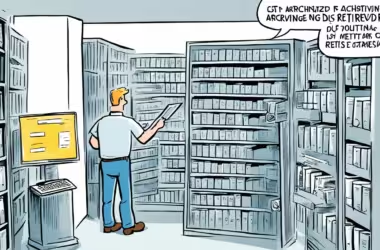The digital world we inhabit relies heavily on the expertise of application developers. They craft the applications that power our smartphones, streamline business processes, and enhance our daily lives. But with a career in application development comes a crucial question: what are the application developer salaries?
This comprehensive guide delves into the world of application developer salaries, exploring factors that influence compensation, average salary ranges, and career paths with high earning potential.
Demystifying Salary Ranges: A Global Perspective
Application developer salaries can vary significantly depending on several factors, including:
Location
Cost of living plays a major role. Developers in major tech hubs like San Francisco or New York City typically command higher salaries compared to those in smaller towns.
Experience Level
Entry-level developers with less than 2 years of experience can expect a lower starting salary compared to seasoned veterans with extensive experience.
Skillset and Specialization
Developers with expertise in specific programming languages, frameworks, or niche areas like mobile app development or data science can command higher salaries.
Company Size and Industry
Large corporations and tech giants often offer more competitive salaries compared to smaller startups. Certain industries, like finance or healthcare, might offer higher compensation for application developers due to the complexity of the applications they build.
Global Salary Trends
According to various salary comparison websites, here’s a glimpse into the average annual salaries for application developers across the globe (USD):
- United States: $100,000 – $130,000 (This can vary significantly depending on location and factors mentioned above)
- Canada: $80,000 – $110,000
- United Kingdom: £50,000 – £80,000 (Roughly equivalent to $62,000 – $99,000 USD)
- India: ₹400,000 – ₹1,000,000 (Roughly equivalent to $5,000 – $12,500 USD)
- Australia: AU$70,000 – AU$120,000 (Roughly equivalent to $50,000 – $86,000 USD)
Remember, these are just averages. Individual salaries can fall outside these ranges based on the factors mentioned previously.
Beyond the Base Salary: Unveiling Additional Compensation
While base salary is a crucial component, it’s not the sole factor to consider when evaluating an application developer’s total compensation package.
Here are some additional benefits that can significantly impact overall earnings:
- Bonuses: Many companies offer performance-based bonuses or signing bonuses to attract and retain top talent.
- Stock Options: Some companies, particularly in the tech industry, offer stock options as part of the compensation package, allowing developers to share in the company’s growth.
- Health Insurance: Comprehensive health insurance coverage is a valuable benefit, especially in countries with high healthcare costs.
- Paid Time Off (PTO): Vacation days, sick leave, and paid holidays contribute to overall work-life balance and well-being.
- Retirement Plans: Employer contributions to retirement plans can significantly benefit an application developer’s long-term financial security.
Considering the total compensation package, along with salary, can provide a more holistic view of an application developer’s potential earnings.
Charting Your Course: High-Earning Paths in Application Development
The application development landscape offers a variety of specializations, each with its own earning potential. Here are some paths that typically command higher salaries:
- Full-Stack Developer: Possessing expertise in both front-end and back-end development, full-stack developers are highly sought-after and can command premium salaries.
- Mobile App Developer: Mobile app development is a booming field, and developers with expertise in specific mobile platforms (iOS, Android) can earn competitive salaries.
- Data Science/Machine Learning Engineer: This specialization blends software development with data analysis and machine learning techniques. These highly technical roles often come with significant earning potential.
- DevOps Engineer: Bridging the gap between development and operations, DevOps engineers ensure smooth software delivery and can command attractive salaries.
- Enterprise Application Developer: Developing complex applications for large organizations can be lucrative, especially with expertise in specific enterprise frameworks.
Remember, salary is not the only factor to consider when choosing a career path. Align your skills and interests with a specialization that motivates and excites you, and the financial rewards will likely follow with dedication and continuous learning.
Upskilling and Negotiation: Strategies for Boosting
In the ever-evolving world of technology, staying ahead of the curve is crucial for maximizing your earning potential as an application developer.
Here are some strategies for continuous learning and upskilling:
Online Courses and Tutorials
Numerous online platforms offer a wealth of courses and tutorials on programming languages, frameworks, and emerging technologies. Explore platforms like Coursera, edX, Udemy, or Pluralsight to find courses that align with your career goals.
Coding Bootcamps
These intensive programs provide a fast-paced track to learn in-demand programming languages and software development methodologies. While boot camps can be an investment, they can equip you with the skills to land a high-paying job and recoup your investment quickly.
Professional Certifications
Earning industry-recognized certifications in specific technologies demonstrates your expertise and commitment to professional development. Certifications can enhance your resume and make you a more attractive candidate for high-paying positions.
Open-Source Contribution
Contributing to open-source projects allows you to collaborate with experienced developers, learn from their code, and build a strong portfolio that showcases your skills to potential employers.
Industry Events and Conferences
Participating in industry events and conferences provides valuable opportunities to network with other developers, learn about the latest trends, and stay updated on the ever-evolving tech landscape.
Negotiation Strategies for a Lucrative Application Developer Salary
Knowing your worth and effectively negotiating your salary are essential skills for application developers. Here are some tips:
- Research Market Rates: Utilize salary comparison websites and industry reports to understand the average salary range for application developers with your experience level, skillset, and location.
- Highlight Your Achievements: Quantify your accomplishments with metrics and data when discussing your value with potential employers. Showcase successful projects, positive performance reviews, or contributions to open-source projects.
- Focus on the Value You Bring: Don’t just talk about your technical skills – emphasize how your skills translate into business value for the company. Demonstrate how you can solve problems, improve efficiency, or contribute to the company’s growth.
- Be Confident and Prepared: Negotiate with confidence and be prepared to walk away if the offer doesn’t meet your expectations. Having alternative options demonstrates your value and strengthens your negotiating position.
- Consider the Total Compensation Package: Don’t solely focus on the base salary. Factor in benefits, bonuses, and stock options when evaluating the overall offer.
Conclusion
A successful career in application development goes beyond just the salary. Passion, continuous learning, and a commitment to excellence are key ingredients for long-term success and fulfillment in this dynamic field.
Application developers can significantly increase their earning potential by actively upskilling, staying updated with industry trends, and employing effective negotiation tactics.
Frequently Asked Questions (FAQs) about Application Developer Salaries
How much does an entry-level application developer make?
Entry-level application developers with less than 2 years of experience can expect an average salary range that varies depending on location. In the US, this might range from $60,000 to $80,000 annually.
What skills do application developers need to earn high salaries?
Strong programming skills in popular languages like Java, Python, or JavaScript are essential. Expertise in specific frameworks, mobile app development, or data science/machine learning can significantly boost earning potential.
Do application developers get bonuses?
Many companies offer performance-based or signing bonuses to attract and retain top talent in application development.
Does location affect an application developer’s salary?
Absolutely! Application developers in major tech hubs typically command higher salaries compared to those in smaller towns due to the higher cost of living.
What are some ways to increase my salary as an application developer?
Continuously upskill yourself, gain experience in high-demand technologies, negotiate effectively, and consider specializing in a lucrative area like mobile app development or data science.






